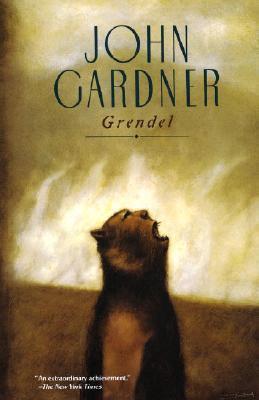Chapter 1
byChapter 1 opens with Grendel, a monstrous figure, observing an old ram stubbornly refusing to move despite his best attempts to frighten it away. This moment marks the beginning of another difficult year, where Grendel finds himself enveloped in frustration and the sense that his existence is futile. The ram’s persistence serves as a mirror for Grendel, symbolizing the mindless cycle he feels trapped in, embodying a painful and repetitive existence. This creature’s behavior irritates Grendel, yet it also reflects his own feelings of helplessness and the endless struggle that defines his life. Its inability to shift serves as a stark reminder of the stubbornness of life itself, where cycles continue despite one’s efforts to break free from them. Grendel’s observation of the ram stirs feelings of frustration within him, reinforcing the monotony of existence that he so desperately wishes to escape.
Grendel’s bitterness deepens as he reflects on the world around him, which he sees as filled with beings that are ignorant and unworthy of respect. He resents the natural order and feels no pride or shame in his identity as a monster, trapped within the harsh realities of life. The cyclical nature of his existence becomes painfully evident as his memories of past violence and destruction intertwine with the mundanity of his daily experiences. These memories, rather than offering satisfaction, only deepen his weariness and make him question the value of his past actions. Grendel’s violent deeds, including the slaughter of innocents, seem to hold no meaning anymore, and he begins to question whether there is any point to the existence he leads. The more he reflects on his past, the more detached he feels from the world around him, and the more exhausted he becomes from the unrelenting cycle of violence. This internal conflict, born from a combination of apathy and frustration, pushes Grendel further into isolation.
As the seasons change, the arrival of spring awakens Grendel’s primal instincts, particularly his thirst for blood. The stirrings of his rage, long dormant, propel him to leave his dark lair and confront the world above. This desire for violence becomes overwhelming, as Grendel feels the urge to remind the world of his destructive power. As he steps outside into the cold night air, there is a sense of liberation, but also a reminder of the monotony of his existence. Despite the freedom he finds in his movements, Grendel is once again confronted with the fear and terror of the creatures around him. He sees the world through the lens of fear, with terrified animals marking his journey through the night, and the overwhelming sense of isolation continues to grow within him. Even as he moves through the night, the world around him reinforces the conflict within his mind, where his actions are driven by rage, yet his existence remains devoid of true purpose.
Grendel’s path leads him toward Hrothgar’s meadhall, a place he has long terrorized, where his presence is met with both fear and superstition. As he approaches, he is filled with a mixture of exhilaration and contempt, for the fear of the people only amplifies his resentment. He reflects on their attempts to understand their suffering, seeing their theories and explanations as trivial and naïve in comparison to the violent world he inhabits. Grendel’s understanding of existence is shaped by brutality, and the fragile hopes of the Danes only serve to highlight the divide between their ideals and the reality of his life. Their rituals and beliefs seem irrelevant to him, as they cannot touch the raw, visceral truth of life defined by violence and survival. In Grendel’s eyes, they are trapped in a world of illusion, one that fails to acknowledge the harshness of existence and the inevitability of death.
The chapter reaches a climactic point when Grendel witnesses a funeral pyre being prepared for the victims of his latest rampage. The grief of the crowd, along with the songs of lament, stirs a violent rage within him, and he feels a sense of power mixed with an unsettling emptiness. While he finds a twisted satisfaction in the destruction he causes, there is also a lingering sense of meaninglessness that shadows his actions. As the flames consume the bodies of the fallen, Grendel retreats, repelled by the stench of burning flesh and the mournful cries of those he has tormented. This moment encapsulates Grendel’s internal struggle, where his actions, though violent and seemingly empowering, leave him feeling no closer to understanding his purpose. The chapter concludes with Grendel fleeing the scene, caught between his desire for destruction and his growing awareness of the emptiness of his existence. The complex relationship between power and vulnerability, destruction and emptiness, is at the core of Grendel’s identity, which remains unresolved as he retreats further into the darkness of his mind.

